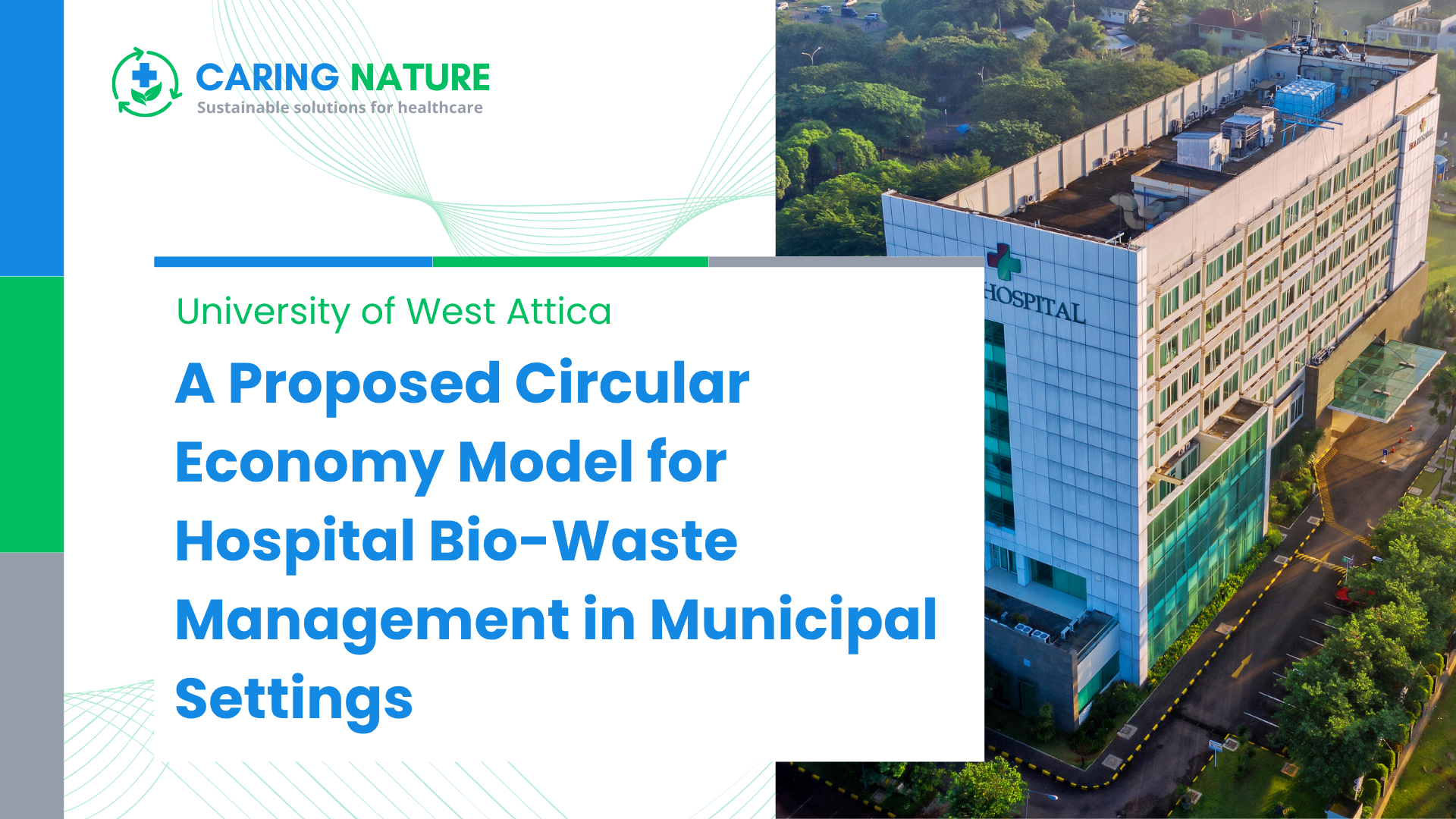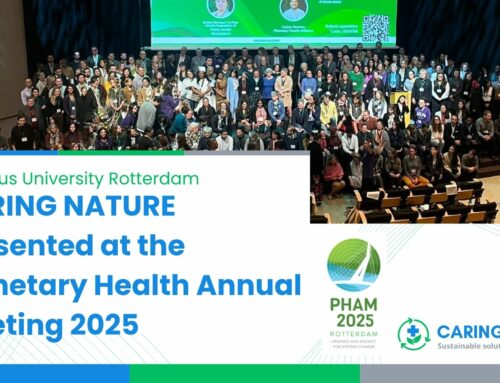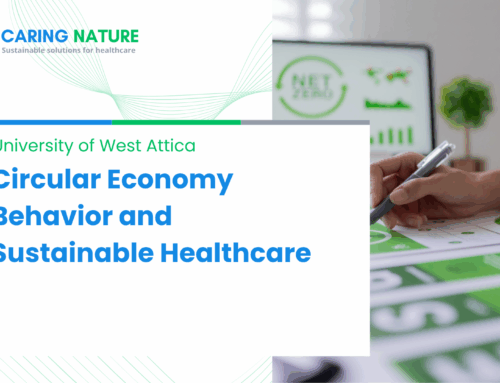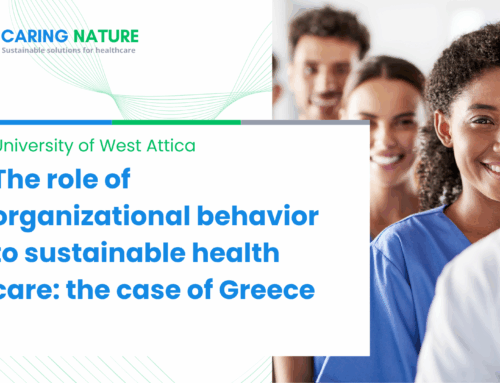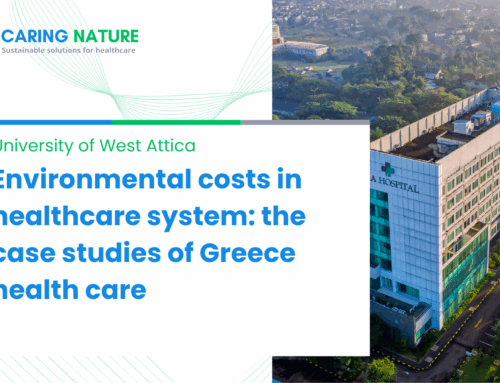Hospitals are major contributors to urban waste streams, yet few systems fully integrate circular economy (CE) principles into their operations. CARING NATURE partners at the University of West Attica Anastasios Sepetis and Konstantinos Georgantas, together with Ioannis Nikolaou, form the Democritus University of Thrace, released a new study that explores how Athens has begun to change this paradigm through a circular bio-waste management model, offering a replicable framework for other cities worldwide.
Using Athens as a case study, the research proposes a comprehensive CE model for hospital bio-waste management. It combines waste segregation at source, resource recovery through composting and anaerobic digestion, and data-driven monitoring tools to enhance efficiency and sustainability. The study applies multi-criteria decision-making (MCDM) methods, such as TOPSIS, to assess system performance over three years.
The findings are promising. Since its launch in 2021, amid the COVID-19 pandemic, the Athens program has expanded from 18 to 20 hospitals, steadily increasing the volume of bio-waste diverted from traditional disposal. Between 2022 and 2023, improved segregation and optimized collection systems led to higher recovery rates and reduced landfill dependency. These achievements reflect the city’s strong municipal support, continuous staff training, and collaborative governance between hospitals and public authorities.
Beyond environmental benefits, the initiative has delivered economic gains, improved resource efficiency, and contributed to a healthier urban environment. The Athens case study shows that integrating circular economy principles into hospital waste management is both feasible and impactful. Its structured, scalable approach provides a blueprint for other municipalities seeking to transition from linear to circular systems, advancing sustainability goals while fostering urban resilience.
Read the full study here

